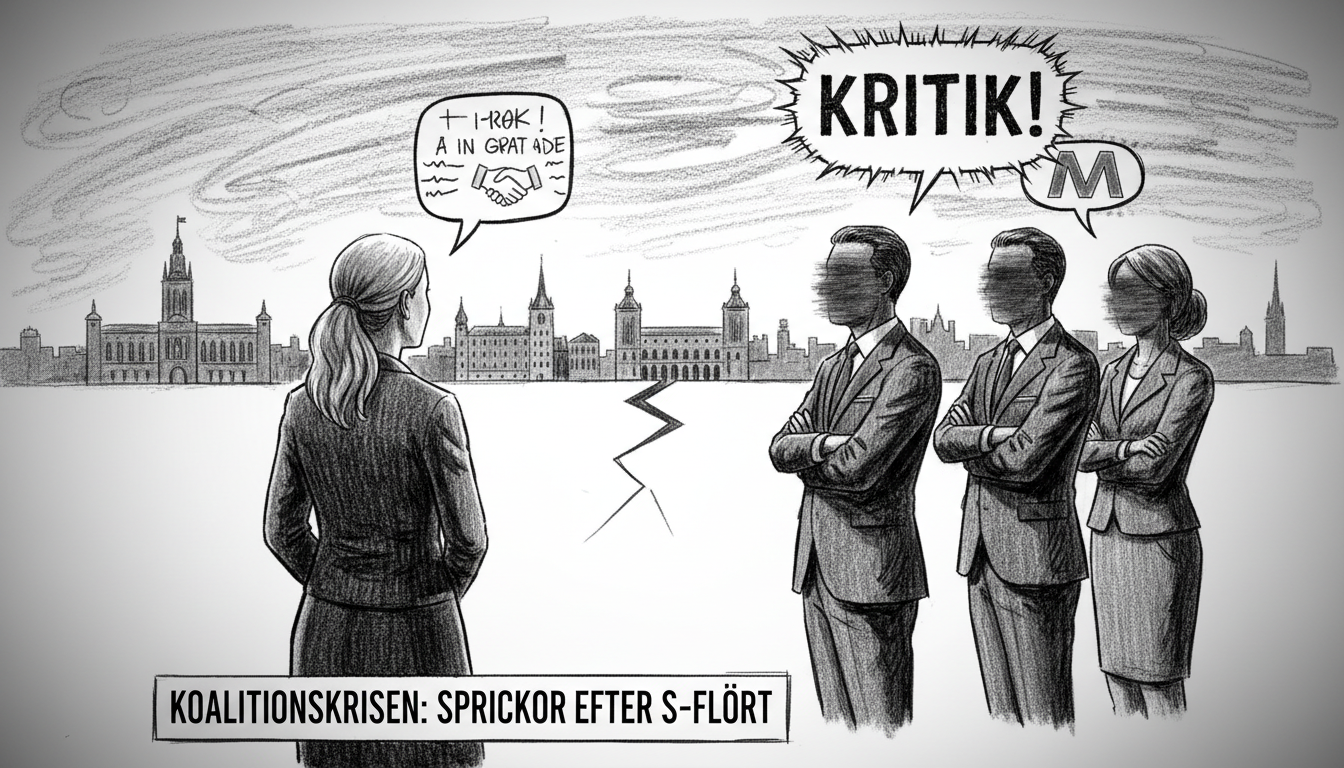Ebba Busch faces sharp criticism from her own coalition partners after suggesting potential cooperation with the Social Democrats. The Christian Democrat leader's comments about forming broader agreements have sparked internal conflict within Sweden's governing coalition.
Several Moderate Party representatives expressed strong disapproval of Busch's statements. Douglas Thor, chairperson of the Moderate Youth League, offered a pointed response. He said this development provides valuable clarity for voters. Thor believes the public now sees the political landscape more clearly.
In a recent interview, Busch opened the door to collaboration with the opposition Social Democrats after the next election. The Christian Democrat leader clarified her position on potential government formations. She stated she doesn't particularly want Magdalena Andersson as prime minister again. But she emphasized the need for broader agreements on crucial policy matters. Busch explained she wants multiple options available if circumstances require them.
This political controversy reveals deeper tensions within Sweden's center-right coalition government. The four-party alliance has governed together since the last parliamentary elections. But differences in strategy and ideology now surface publicly. The coalition includes Moderates, Christian Democrats, Liberals, and Centre Party.
Sweden's political system often requires cross-bloc cooperation. No single party typically achieves majority government status alone. This reality forces parties to negotiate and form alliances. But Busch's comments about working with the main opposition party break established coalition norms.
Political analysts see this as significant for several reasons. It signals potential realignment possibilities in Swedish politics. It also demonstrates the Christian Democrats' strategic positioning ahead of future elections. The party may be calculating that voters want pragmatic solutions over strict ideological loyalty.
International observers should understand this development's implications. Sweden's coalition governments often feature complex negotiations. This system differs from two-party systems like the United States. Swedish politics typically involves multiple parties forming governing majorities.
What happens next matters for Sweden's political stability. The current government faces challenges maintaining unity. Internal disagreements could weaken their position in parliament. Opposition parties may exploit these visible divisions during upcoming policy debates.
The timing of this controversy is particularly sensitive. Sweden faces economic challenges and security concerns following NATO membership. A stable government remains crucial for addressing these issues effectively. Political infighting could distract from important national priorities.
This situation also raises questions about future election strategies. Will voters punish parties for internal conflicts? Or will they reward pragmatic approaches to governance? The coming months will reveal how this political drama affects public opinion and voting intentions.

